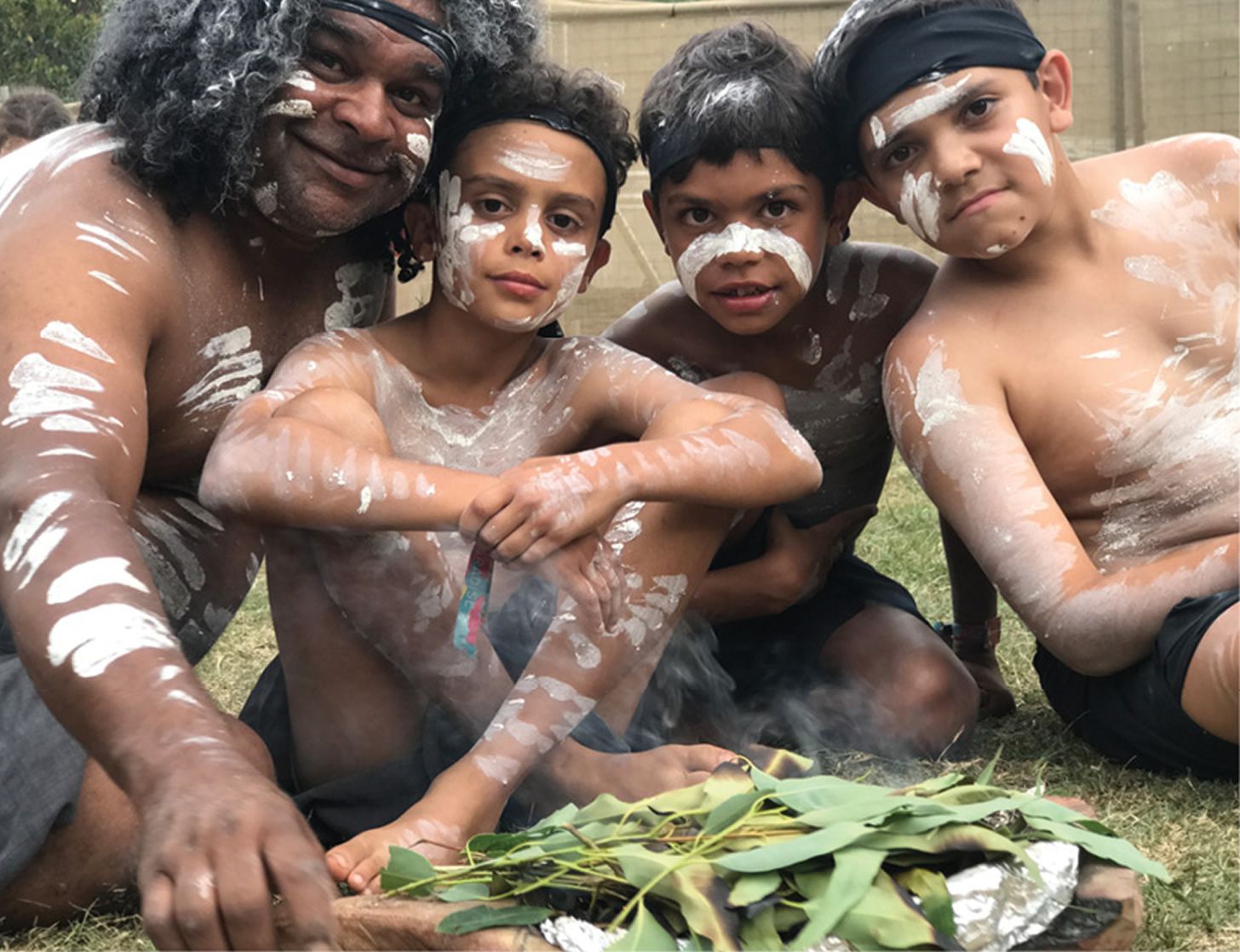Named Public School Parent of the Year in 2015 for his work at his own children’s school, Canterbury South Public School, John runs a Culture School and has shared his work with a number of schools and other organisations, including the IEUA NSW/ACT Branch. His favoured approach is to simply sit down to have a chat with people and answer their questions.
“I’m an interpretive worker, as we’re operating in a western culture which is very different to Aboriginal culture,” John said.
“So I have to interpret the Aboriginal way of seeing the world in a way that people from a western culture can understand and relate to.”
John uses words like ‘religion’ and ‘spirituality’, but he said these words do not adequately describe the Aboriginal way of seeing the world.
“I talk about 11 tall ships turning up at the Opera House and ask people what it would feel like if 11 UFOs turned up right now.
“There are smoking ceremonies in use by the Catholic church so I try to compare our smoking ceremonies with that.
“I talk about ‘spiritual emails’ – that sense of connectivity between people. I talk about the sense of reverence you might get visiting a cemetery, and how there are no obvious Aboriginal cemeteries, and yet they are still there. That sense of reverence for place that Aboriginal people feel, even when it’s a farmer’s field that they are no longer allowed to step on – I try to explain it in that way.”
During his sessions in schools with teachers and students, John divides people into groups and asks them to draw on butcher’s paper the symbols for their clan: their family, home, pets, favourite places, mobile phones etc.
He then removes items from that clan in the guise of Governor Philip.
“I let them sit on that for a while. There was resentment about losing their things. It gave them an idea of what that sense of loss feels like.”
John aims for “emotional” learning and creating a sense of empathy.
“I’ve seen people say, ‘I’m from the stolen generation and I’m angry’ and I’ve watched others run away from them, scared.
“Rather than anger I like a gentle approach, explaining slowly and aiming for that empathy. I like the expression ‘you get more rewards with honey than the hammer’.”
John’s Welcome to Country at the IEUA NSW/ACT Branch 2017 Environment Conference was praised by delegates for its warmth and vision.
John encourages schools that want more Aboriginal culture to make connections with Aboriginal people in their area.
“You don’t usually have men running a women’s group,” he said.
But while Aboriginal students attending a school could provide connections with community, they should not be used as a ‘resource’.
“They are students there to learn like any other. Often they are under pressure, especially boarders away from their country and family, so using them as a resource is not a good idea.
“If they are happy to talk about their culture and make connections with family, fine. But asking them lots of questions they may not know the answers to is unfair. Get an adult in.”



































































































































